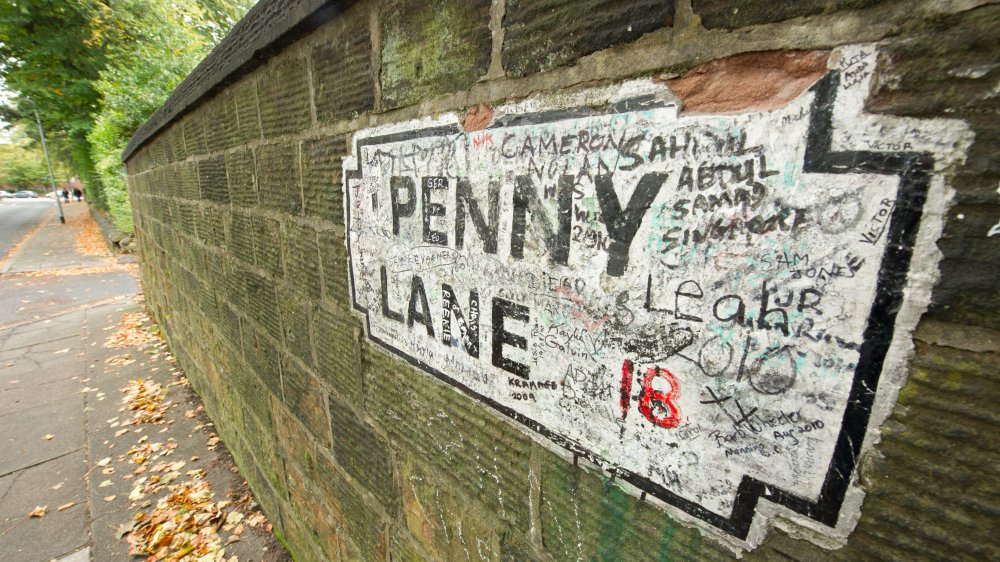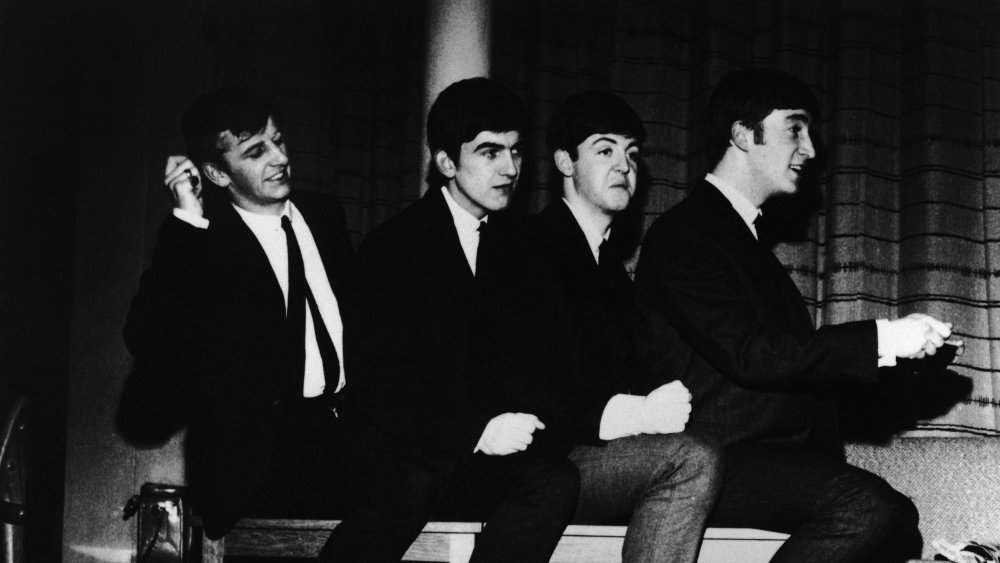The Dark Truth Behind The Beatles' Penny Lane
There is a list, seemingly growing on a daily basis with the verdant ferocity of a kudzu vine (or the public's frustration with using "that's not a thing" as a punchline) of seemingly random products, images, or pop culture fixtures which the generally well-meaning public has never realized perpetuate a history of racism. These go beyond the scope of controversial mascots like Aunt Jemima — everyone knew, in their gut, that there were problems there. No, these are otherwise innocuous slices of cultural pie which, without a history degree, don't look like anything troubling. For example, phrases like "cake walk" and "peanut gallery, per CNN, and familiar imagery like Mickey Mouse's gloves, via DigitalSpy, are surprisingly problematic.
And, taking a long view and allowing a couple of degrees of separation, the same may be true of the Beatles' 1967 classic "Penny Lane." The connection is a little convoluted, and entirely unconfirmed, but according to the BBC, that hasn't stopped folks from spray painting over signs in Liverpool and adorning them with the word "RACIST."
Very strange
The facts are these: In the 1700s, there was a man named James Penny living in Liverpool. He made a substantial amount of money owning and operating slave ships. He testified in front of Parliament, stating that slavery, for lack of a better word, was good, and tried to promote the institution by claiming that slaves were allowed to dance and play on his ships. He died in 1799, which is probably just fine.
At some point, a street in Liverpool was christened "Penny Lane.” The history of the name is unclear. It may have just been a name. Maybe it referred to a toll. In a country with infrastructure dating back to the Roman Empire, things like street names kind of get lost in the mix. Per a Clash Magazine interview with Paul McCartney, though, he and John Lennon used to catch buses on Penny Lane. They wrote the song as a throwback to simpler times, during the height of their celebrity.
The BBC reports that, according to the International Slavery Museum, the potentially racist history of Penny Lane is a matter of ongoing investigation, but is, in all likelihood, not a thing.

